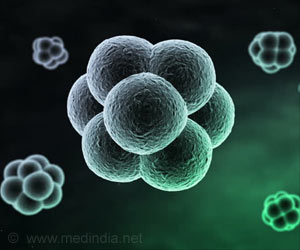Genetic activity is discovered to begin at the one-cell stage in human embryos far sooner than previously thought, thereby changing the conventional notion on developmental origins, as per a study at the University of Bath, published in Cell Stem Cell.
These findings challenge the textbook view that genes do not become active until they are made up of four-to-eight cells, two or three days after fertilization.
‘Genetic activity is discovered to begin at the one-cell stage in human embryos far sooner than previously thought, thereby changing the conventional notion on developmental origins.’
The team used a state-of-the-art method called RNA-sequencing to precisely analyse the gene activity of individual human eggs and one-cell embryos.
It was found that hundreds of genes awaken in human one-cell embryos. Moreover, as these gene activities are small, it was difficult for the previous techniques to be sensitive enough to detect them.
“This is the first good look at the beginning of a biological process that we all go through – the transit through the one-cell embryo stage. Without genome awakening, development fails, so it’s a fundamental step. It looks as if there is a sort of genetic shift-work in early embryos: the first shift starts soon after fertilisation, in one-cell embryos, and a second shift takes over at the eight-cell stage,” says Professor Perry, from the Department of Biology and Biochemistry at Bath.
These findings may have clinical implications for the inheritance of several acquired traits like obesity and similar counterparts.
Source: Medindia



